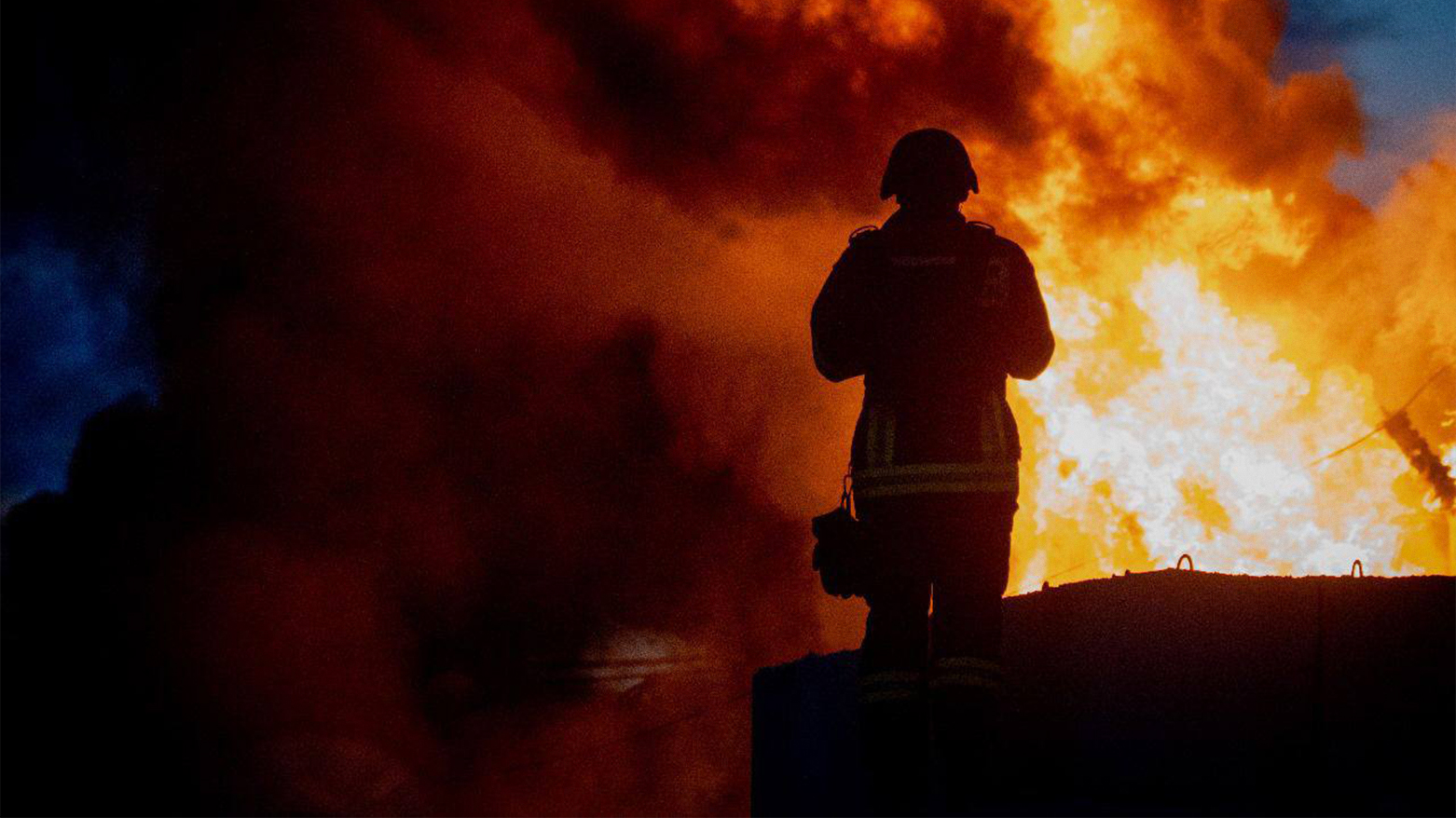Zelensky: Ukraine Repels Massive Russian Attack of Over 300 Drones
Zelensky said Ukraine repelled a massive Russian attack of over 300 drones, causing casualties. The assault comes as the EU agreed on a new sanctions package targeting Moscow's vital energy exports to cripple its war effort.

By Kamaran Aziz
ERBIL (Kurdistan24) – Ukrainian President Volodymyr Zelensky announced on Saturday that his country’s forces had repelled a massive overnight Russian air assault involving more than 300 drones and 30 missiles, which caused widespread damage and resulted in at least one death and several injuries.
In a detailed post on his official Telegram channel, Zelensky described the scale of the attack and the ongoing response, while also outlining Ukraine’s urgent diplomatic and military priorities with its Western partners.
“Tonight, our warriors from various units repelled another Russian attack,” Zelensky stated. “More than 300 strike drones and over 30 missiles of various types were used against our cities.”
According to the president’s post, rescue operations were underway across ten regions, including the Donetsk, Dnipro, Sumy, and Odesa oblasts. He detailed significant damage, noting that critical infrastructure was hit in Sumy, leaving thousands without electricity. In Odesa, a residential building was damaged, killing one person and injuring six others, including a child. Combined strikes also hit Shostka, while missiles and drones damaged a residential building and important infrastructure in Pavlohrad.
Zelensky thanked international partners for their support but underscored the urgent need to accelerate the implementation of military agreements. He specifically called for more joint weapons production, investment in interceptor drones, and the swift provision of air defense systems and missiles, adding that the ability to produce them domestically "saves lives and is needed by Ukraine right now."
The Ukrainian leader also shared a report from his Minister of Foreign Affairs, Andrii Sybiha, outlining key diplomatic efforts. He said work was progressing with the European Union on an 18th sanctions package against Russia, which he has instructed to be synchronized with Ukrainian law.
Regarding the United States, Zelensky noted that agreements are "currently in progress" with "good momentum," and that he is preparing to define priorities for future relations with the U.S. in a meeting with ambassadors on Monday.
The president also highlighted a new humanitarian and diplomatic issue on the border between Russia and Georgia. According to the foreign minister’s report, Russia is "effectively 'dumping' Ukrainian citizens from Russian territory without documents or warning to either Ukraine or the Georgian side." Zelensky clarified that these are Ukrainians being released from prisons and camps in Russian-controlled territory, and that Ukrainian diplomats are now working to organize their transit back to Ukraine.
The massive overnight assault described by President Zelensky is characteristic of Russia's strategy of using large-scale missile and drone strikes to target both military objectives and civilian infrastructure, particularly Ukraine's energy grid. Ukraine's defense relies heavily on Western-supplied air defense systems.
Zelensky's mention of sanctions came as the European Union on Friday agreed to what was described as an "unprecedented" 18th sanctions package against Russia.
According to a France24 report, the measures are specifically designed to cripple Moscow's vital oil and energy exports. The agreement was reached after Slovakia dropped its opposition upon receiving "guarantees" from Brussels on other energy matters.
"The EU just approved one of its strongest sanctions packages against Russia to date," EU foreign policy chief Kaja Kallas said, as cited by France24.
According to the report, a central element of the new sanctions is lowering the G7 price cap on Russian oil to 15 percent below market value, a move that EU allies reportedly made without the full agreement of US President Donald Trump.
The package also blacklists over 100 more vessels in Russia's "shadow fleet" of oil tankers, targets a Russian-owned refinery in India and two Chinese banks, and includes measures to prevent the reactivation of the Nord Stream 1 and 2 gas pipelines.
The sanctions are rounded out by an expanded transaction ban on Russian banks and more restrictions on "dual-use" goods that could be used on the battlefield.